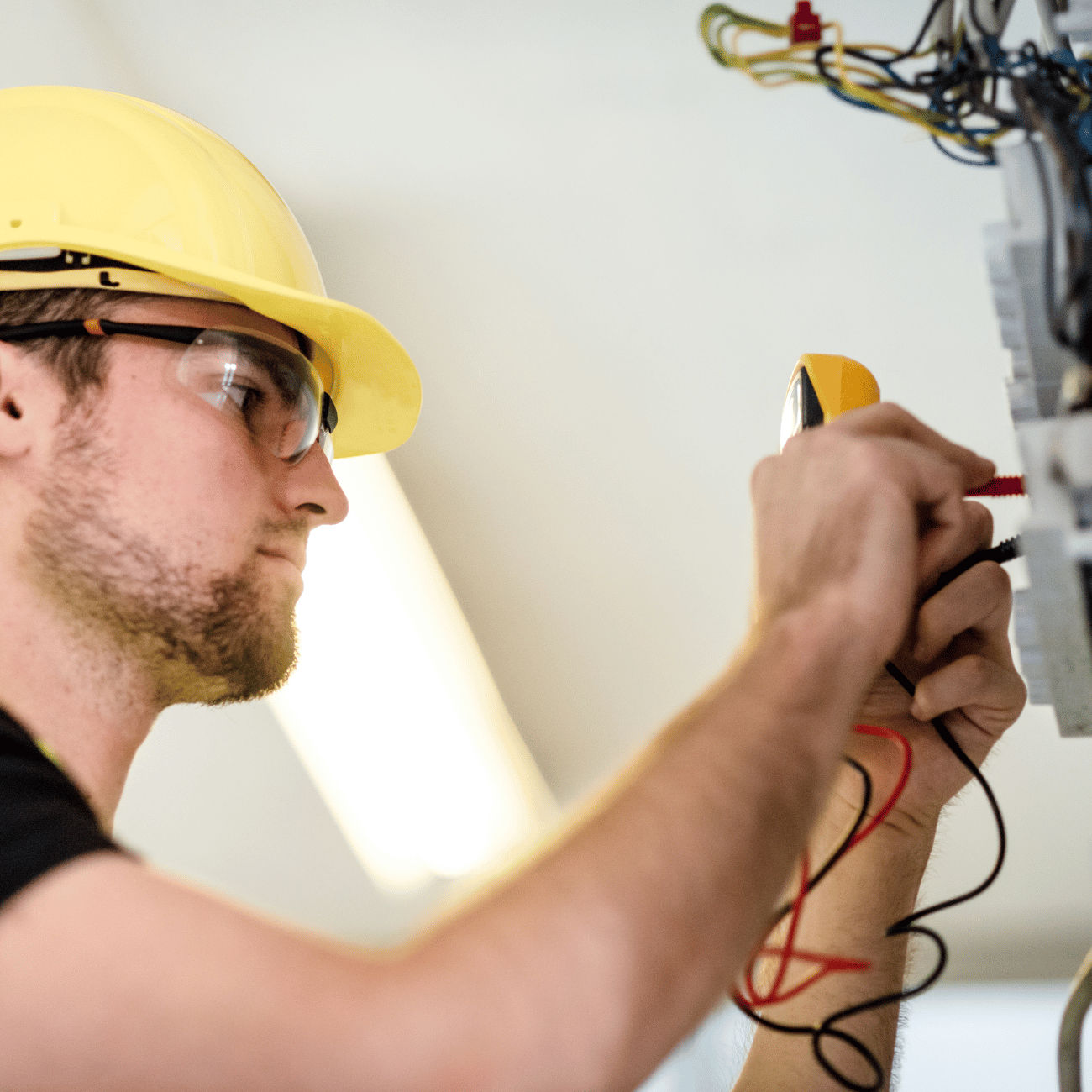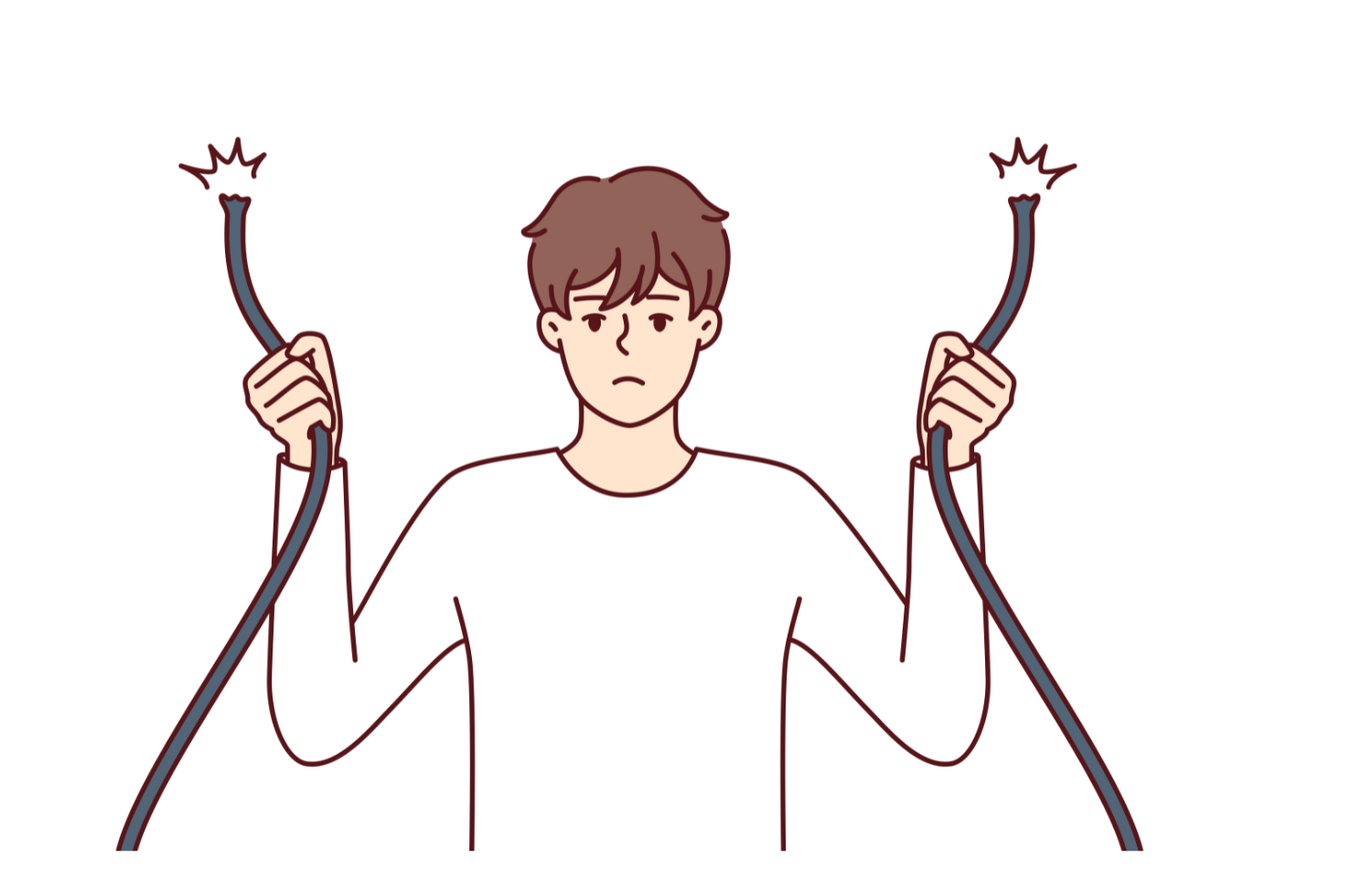Electrical
At the heart of everything we do is a commitment to safety, quality, and professionalism.
All our electrical work is carried out using current best practice methods and is fully guaranteed for your peace of mind. We adhere strictly to the latest AS/NZS 3000:2007 electrical standards, ensuring every installation, repair, or upgrade we complete is not only compliant but also built to last. Whether it’s a simple residential job or a complex commercial project, you can trust that our workmanship meets the highest industry benchmarks.
Our team of electricians is fully licensed, insured, and continually trained to stay up to date with the latest electrical standards and regulations. This means you're not only getting skilled professionals, but also knowledgeable experts who understand evolving safety protocols and technological advancements in the electrical industry. From the moment we arrive on site to the final safety check, you can expect reliable, efficient, and code-compliant service that puts your safety and satisfaction first.


What we do...
- New homes, renovations and extensions
- Re-wiring homes
- Switchboard and meter box replacements, upgrades and relocations
- Testing and tagging of electrical appliances/equipment
- Ceiling/exhaust fans
- Heated Towel rails
- Hot water Service connection
- Data and Telephone cabling
- Digital TV Outlets including aerial upgrades
- Energy efficient LED Lighting solutions
- All general maintenance
- Outdoor lighting and power
- All general power and lighting points
- Ovens
- Cook tops/stoves
- Range Hoods
- Bathroom Tastic installations
- Smoke and thermal alarms/detectors
Why You Should Always use a Licensed Electrician Over DIY Electrical Work
In the era of DIY projects and online tutorials, it might be tempting to tackle electrical work on your own.
However, when it comes to anything involving electricity, hiring a licensed electrician is not just a recommendation—it's a necessity.
Here’s why:
Safety First and Foremost
Electricity is inherently dangerous.
Licensed electricians undergo extensive training to handle these dangers safely. They know how to mitigate risks of electrocution and electrical fires, ensuring not just their safety, but also the safety of your home and family. DIY electrical work, on the other hand, increases the risk of accidents, some of which can be fatal.
Expertise and Experience
Licensed electricians bring a wealth of knowledge and experience.
This expertise allows them to diagnose and fix problems quickly and efficiently. They understand complex electrical systems and can provide solutions that a layperson might not even consider. This level of expertise ensures that the job is done right the first time.
Code Compliance
Electrical work must adhere to local and national electrical codes and standards.
These codes exist to ensure safety and functionality. Licensed electricians are well-versed in these regulations and ensure that all work is compliant. DIY electrical work risks non-compliance, which can lead to issues when selling your property or even legal ramifications.
Insurance and Liability
If anything goes wrong during a DIY electrical project, homeowners insurance may not cover the damages, especially if the work was not performed by a licensed professional. Licensed electricians, however, are generally insured, meaning their work is covered, reducing your liability.
Cost-Effectiveness
While DIY might seem like a cost-saving option, mistakes can be expensive to rectify.
Improper electrical work can lead to additional costs down the line, from repairs to increased insurance premiums. A licensed electrician gets the job done correctly, potentially saving you money in the long term.
Complexity and Evolving Technology
Modern electrical systems are complex and constantly evolving.
Licensed electricians stay up-to-date with the latest technologies and methods. This is especially important with the rise of smart home technology and renewable energy sources, which require specialised knowledge for installation and maintenance.
Peace of Mind
Knowing that a qualified professional has handled your electrical work brings peace of mind.
You can trust that your electrical system is reliable, efficient, and above all, safe. This assurance is invaluable, particularly in a domain where errors can have severe consequences.
Time Efficiency
Licensed electricians, equipped with the right tools and knowledge, can complete electrical work much more quickly than the average DIY enthusiast. This efficiency means less disruption to your daily life and quicker resolution of any electrical issues.
Warranty and After-Service
Many licensed electricians, like Full Circle Electrical, offer warranties for their work.
This means if something goes wrong post-service, they will address it at no additional cost. DIY work comes with no such guarantees, leaving you responsible for any follow-up issues.
While the DIY route might be suitable for many home projects, electrical work should not be among them.
The risks associated with electrical work — from safety hazards to legal and financial repercussions — make it abundantly clear that hiring a licensed electrician is not just a matter of convenience, but a critical decision for the well-being of everyone involved.

SAFETY
IS PARAMOUNT
When dealing with electrical installations or repairs, the inherent risks associated with electricity is very high.
These risks can lead to severe consequences if not properly managed.
Electrocution
One of the greatest dangers linked to electrical work is the risk of electrocution.
This happens when someone comes into direct contact with an energised part or a live wire. Electrocution can cause severe injuries or even be fatal.
Properly trained and experienced electricians are trained to handle these risks. They follow proper safety protocols, use insulated tools, and ensure that circuits are de-energised before beginning work.
Compliance Issues
Electrical work must comply with local, state, and national electrical codes and standards.
Non-compliance not only poses safety risks but can also lead to legal issues, such as fines or voided insurance claims.
Qualified electricians are knowledgeable about these regulations and ensure that all work is compliant.
Fire Hazards
Incorrect electrical installations or repairs can lead to short circuits, overloaded circuits, or overheating, all of which are significant fire hazards.
Faulty wiring is a common cause of electrical fires.
Experienced electricians understand the importance of adhering to codes and standards that mitigate these risks, including ensuring appropriate wire gauge, correct connections, and proper circuit loading.
Electrical Arcs and Blasts
Electrical arcs can occur when high-amperage current jumps between two points, creating an extremely hot and dangerous arc of electricity.
This can cause burns and even explosions, especially in environments where flammable gases or dust are present.
Experienced electricians know how to prevent these incidents by ensuring secure connections and using proper equipment.

